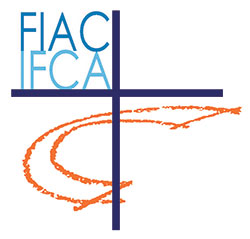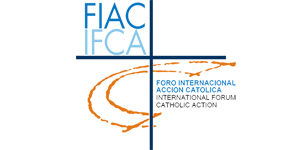The problems which unite us Alexandru CISTELECAN – Eastern Europe, Romania
1. faith
2. culture
3. history
4. hope
1. Faith. The paradox of all these problems which unite us is that they are the ones which divide us. Each one is ambivalent, has both its constructive and discordant, if not also its destructive one.
Faith unites us, for example, but confession, that is its interpretation, separates us.We have the same root but we have grown up differently.
Even this difference has both its positive and negative side. On one side, it contributes to the spiritual wealth of Europe but on the other it can contribute – and it often it does – to tension.
As we can see, God has left space for our free will, for our freedom of choice and action even in this field. The spiritual struggle is no novelty for Europe but up to a certain extent we have reached a situation of dialogue and coexistance.
Dialogue, cooperation and hopefully tolerance towards the other confessions are not lacking even in eastern Europe.
We do not lack either tensions, mistrust and contrasts.The ecclesial/religious developments in the East are more multicoloured than in the West. There is almost no country without this multicoloured situation. Everywhere there is a dominant religion, often super dominant, but there are also those in a minority, religious minorities which can be, at the same time, ethnic minorities. In this case they are looked upon as “foreigners”, with some sense of resentment and with a continuous, even though controlled- xenophobia. The situation is even more serious when the religious minorities ethnically belong to the same nation. Here we have accusations of betrayal and fragmentation of national unity. The concept of monoconfessionalism is still present in our countries even if the rethoric has adjusted itself to the exigencies of ecumenism.
It may seem strange that the issue in favour of confessional monolitism comes from the West, where actually there are compact countries from the confessional point of view. Nation = religion is a concept which is still developing, it does not fit in with reality. It is true that in some Eastern countries, for example, the Byzantine Catholic church has contributed significantly to the birth -as well as to the rebirth- of the respective nations , and in this case the accusation of “betrayal” is considered most unjust. The phenomenon of making someone feel guilty goes on and it adds to the fact that in the postcomunist era, the Byzantine churches continue to have some difficulties in recovering their property. For example, the picture of the centre of the cities in Transilvania, between the two wars: an Ortodox cathedral on one side of the square, a catholic (Latin) cathedral on the other side, a Greek-Catholic one on another and a reformed cathedral which closed the quadrilater was really beautiful. Now this picture is rarely so colourful. God is one, as all believers know, the churches are many.The latter must be ways which lead us to the same port. Just as we have arrived here in Sarajevo.
Definitely if someone tells us that we have taken the wrong way he has to expain to us that we are not in Sarajevo.
It is not only the fact that we adhere to a particular confessional identity which unites or separates us, but also the way of living our faith in our actual daily lives. A good friend of mine used to frequent a bar, which was near to his place, for a coffee, a beer or some cigarettes. He was regularly cheated of some change. He kept going there just for curiosity, to see up to what point this could go on.Besides he had made friends with the lady at the bar as by now they had got to known each other for quite some time. One day he met the lady in church and was amazed by her fervour, devotion and how she prayed in front of all the icons. He thought that he was mistaken, that something had happened and that the lady was “converted”. So he went to the bar full of trust.However nothing had changed, the lady’s attitude was the same, she cheated him with the same ease.The church was on the other side of the road and did not cross the lady’s daily life . It is this schizophrenia in religious life which characterizes social life, where corruption is blatant. God is actually enclosed in his churches and his commandments in no way influence daily life. He is a holiday God who very conveniently fits in well on TV together with politicians. And the different confessional groups try to unite themselves in the hope that God may find a place again in daily life.
2. Culture. Romanian culture is usually defined as a bridge between East and West. This is probably true and valid also for other Eastern cultures even though on a different level. It is a fact that Romania has been modernized politically, socially and culturally under the influence of the West.
Since the 18th century it has worked to be westernized. All European political and cultural movements have had a meaningful echo on the Romanian culture and they have often been decisive. The history of Romania has been tuned on the European one. But none the less, even today, the eastern influence may still be felt.. This mixture makes all the difference in Romania. It invests in its diversity by investing in the East that which it has taken from the west and in the West that which it has taken from the East. A dialect of normal identity is ongoing. The Romanians define themselves as European but there are outstanding differences in habits, mentality and attitudes which sometimes are strongly felt.
At the beginning of last century, for example Paymon Poincarè, who later became President of France, at the time a simple lawyer who came to Bucarest to assist at a trial, immediately noticed these differences and before leaving he left us a famous saying, which gives us an accurate definition : “we are here at the gate of the East where everything is taken lightly”, meaning that even today, here, the most serious issues are dealt with lightly.Up to a certain extent, this is good because it reveals a certain sense of humour but otherwise, certainly, it does not show commitment. Often because of this lightness, there is a breach between words and facts, talks and deeds. Enthusiasm in words and scepticism in facts leave a remarkable gap. The problem is whether God is on the side of words or of facts.Someone may tell me that this makes no difference for Him but the story I told you before shows that He is rather on the former side.
Culture means history and projects One is not more important and decisive than the other. The Eastern cultural project is ambiguous: the regaining of identity, roots, and differences on one side, and tuning in to the West on the other.They are like two communicating vessels.Only today as a result of globalization , which is also cultural, the first tendency tends to become more and more dramatic. There is a layer of culture which follows the movement towards uniformity, monotony (the media culture, the consumistic culture etc…) and there are layers which point at the differences:on the one hand the “touristic” culture which wants to enhance local traditions, and on the other hand the “elite” culture which always seeks originality.
But even here that which unites us is rather that which separates us, that which distinguishes us. It is not so much the common media culture which unites us as much as the curiosity to find out differences – the value of differences.
3. History. For Eastern countries history is like a pendulum.One movement unites us to the history of the rest of Europe, another one separates us. The last before one was communism which separated us from Europe. This last one – we all hope – will unite us to Europe.
But in the East, recent history has left a serious trauma. It is an economical and political deviation of mentality which needs to be seen to quickly.During the communist era my village was adopted by a Belgian village. This “Operation Romanian Villages” was undertaken when the news spread that Ceausescu wanted to destroy the small villages. The Belgians arrived with humanitarian help as soon as they heard about the fall of the regime. It was winter and Romania did not have good roads. My village does not have them even now. It is difficult to reach it even in summer and you need to know the road well. Yet the Belgians were able to arrive just the same. They brought a photo album and a short illustrated history of their village with them, in order to let my fellow villagers know about their village.I saw that album which had some pictures of the period between the wars. There was no difference then between my village and theirs. They had the same cloths, (holiday ones because they were Sunday photos), the same men’s boots, the same white shirts, the same black vests and the same straw hats. Even as regards women, they were not so differently dressed, maybe different colours. The farm was almost identical: on one side the house, with the stables on the opposite side. The hens were in the same place, and even the dung. Even the roads were just like ours, impracticable, they depended on the weather. We could then say that it was one Europe. But now there are drastically two Europes. My village is still as it used to be, the Belgian one as you all know is all over Europe. In Romania it can be taken as a holiday place. If there is a beehive, it is only as a decoration, it is a symbol, a memento. But there is no evil without good. If anybody wants to rediscover country life in its authenticity and antiquity, all he has to do is come to my village and not to the Belgian one. If he wants to go back in history, because history makes a difference there, he should definitely come to us.
4.Hope. It is perhaps the only factor which does not have two sides. In the East hope is lived mainly as an economical hope. For such a hope one has to wait, one has to have patience. But what kind of patience for people who have lived all their lives in poverty? They have a right to expect urgency because they have to make up for the frustrations they have had all their life. Some can become rich even where they are but not everybody. Presently there is nothing which can be done. Europe can provide the money through work or any other means, even illegal ones. It is only fair that in this case our hope finds the support of the West. In this sense, even hope is problematic. 60% of the youth in Romania would like to leave the country even if only for a short time. This means that for them hope is elsewhere ,not so much in their homeland. This is the hard side of hope: desperation.
That is why the project “Europe” excites so many: because it is a glimpse of wealth. It is also true that it is a hope for justice and rules. Corruption will in fact only be stopped when rules are imposed. Our experience tells us that this will not happen until the rules are made, applied to us and adhered to by us.
But is not this hope a real, unsolvable desperation?
III European-Mediterranean Continental Meeting
FOR A FRATERNAL EUROPE. The contribution of Catholic Action •Sarajevo, September 3rd-7th 2003
- rsris_slide_link:
- wps_subtitle:
- Alexandru CISTELECAN - Eastern Europe, Romania
- pl_view_post:
- 978








